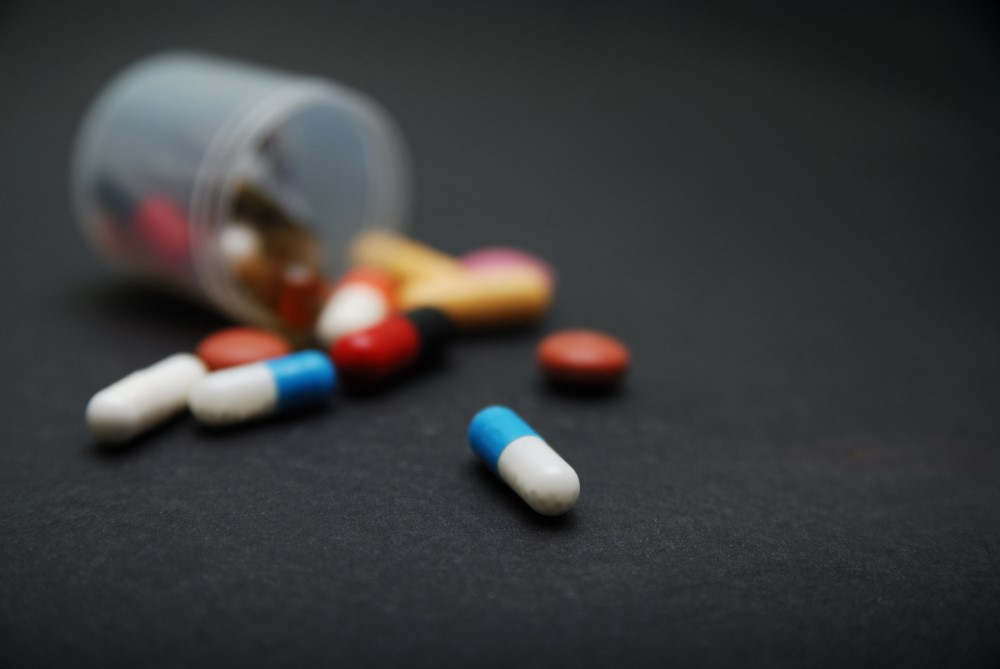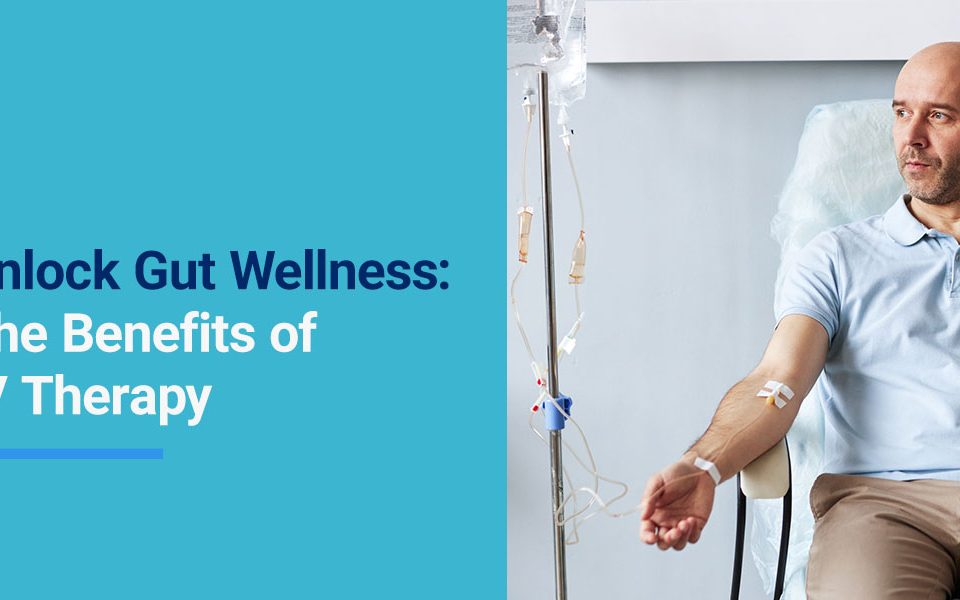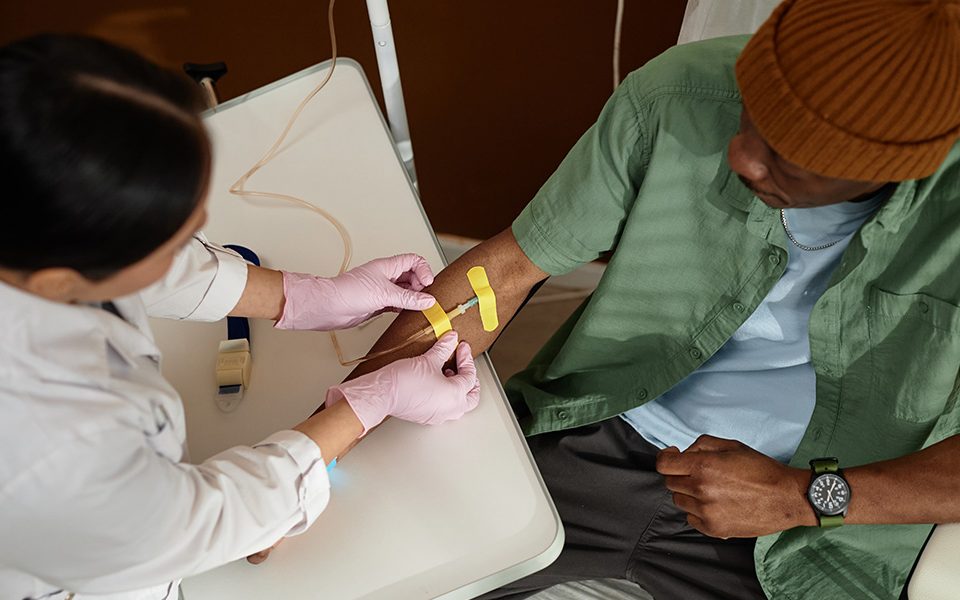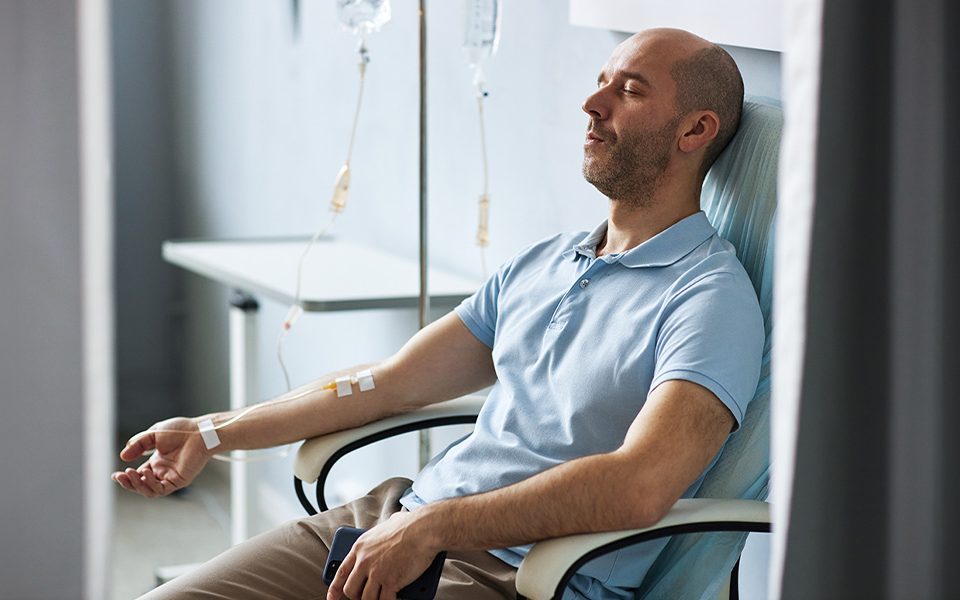New Client Special – One Free IV Add-in (Up to a $30 Value) Schedule Now
How Long Do IV Fluids Stay in the Body?

Getting Started With a Magnesium Deficiency
May 31, 2023
Is IV Therapy for Weight Loss Safe?
September 23, 2024Table of Contents
- What’s in IV Fluids
- Factors That Affect IV Fluid Retention
- Does it Matter How Long IV Fluids Stay in Your Body?
- How Long Do IV Fluids Last?
Many of our customers are naturally curious about the IV therapy process. One of the most common questions we get is, “How long do IV fluids stay in the body?” This is a great question, and you might be surprised by the answer. In this article, we’ll look at how long IV fluids last in the body and why the answer might not actually matter.
What’s in IV Fluids
Before we get to the question of how long IV fluids last in the body, it helps to understand what’s actually in a bag of IV fluids. Every IV fluid bag is mainly comprised of saline solution, a mixture of water and salts, also known as electrolytes. This saline serves as a fluid medium for other ingredients that can be added to the IV, including vitamins, minerals, and medications.
Different IV treatments will contain different ingredients, but they all include saline. So, how long does IV saline stay in your body?
Let’s look further into this question.
The Factors That Affect IV Fluid Retention
In most cases, the saline in an IV will stay in the body for only a few hours. During this time, the body will naturally eliminate the saline through perspiration, urination, and exhalation. (That’s right, you lose small amounts of water every time you breathe. Now you have a fun dinner fact!)
Certain important factors can determine how quickly or slowly you lose the fluid from an IV. These factors include
- Hydration rate
- Perspiration
- Illness
- Metabolic rate
- Medications
Hydration
How long does IV fluid stay in your system? One of the best ways to answer that question is to look at your current hydration. The main benefit of saline is that it can be used to rehydrate you rapidly. If you are severely dehydrated, your body will hold onto the fluids and electrolytes longer than usual. If you are fully hydrated when you receive your IV, you may quickly lose the IV fluid through urination.
How hydrated are you? The U.S. National Academies of Sciences, Engineering, and Medicine recommends that men consume 15.5 cups of fluids a day, while women consume 11.5 cups of fluids a day.
Many Americans don’t follow these guidelines. A 2022 research paper found that between 17% and 28% of older Americans experience dehydration, which is a common cause of hospitalization and can complicate many medical conditions.
Symptoms of dehydration can include:
- Thirst
- Fatigue
- Dizziness
- Confusion
- Dark-colored urine
- Less frequent urination
If these symptoms are familiar, IV vitamin therapy might help you get back on track with your hydration.
Perspiration
One of the fastest and most common ways to become dehydrated is to simply sweat! Humans can lose as much as three liters of sweat a day, even without performing any physical activity. That rate can rise to as much as two liters of sweat an hour during a tough workout.
Dancing, spending an hour at the gym, hiking, biking, or playing with your kids at the beach can all lead to dehydration through sweating. So can mowing the lawn or even going on a walk — especially in Texas’s humid climate.
If you’ve been sweating hard before your IV treatment, you may retain IV fluids for longer.

Illness
One of the most popular uses for our IV treatments is to help customers recover from an illness. Any illness that leads to vomiting and diarrhea can quickly result in dehydration which can slow down the recovery process. In serious cases, dehydration can land a patient in the hospital.
Conditions like the flu, food poisoning, or even a bad hangover can all cause you to become significantly dehydrated. In these cases, when you might struggle to keep down liquids, IVs can be especially helpful.
Your Metabolic Rate
Your metabolic rate, or the rate at which your body uses energy (calories), can also affect how long IV fluids stay in your body. An individual with a high metabolism will process fluids more quickly than someone with a lower metabolism.
Age, physical fitness, gender, and hormone functions are all factors that can affect an individual’s metabolic rate.
Medications
Some medications act as diuretics, which trigger the body to expel water through more frequent urination. These medications can lead to dehydration if you are not careful to increase your water intake.
One of the most common diuretics is caffeine. You may have noticed the urge to pee after drinking coffee or tea. Drinking multiple caffeinated beverages daily can increase your chances of becoming dehydrated. In turn, IV fluids may stay longer in your body.

Does It Matter How Long IV Fluids Stay in Your Body?
How long do IV fluids stay in the body? That question is the entire point of this article, but does the answer really matter? Yes and no. Let us explain. If you are suffering from dehydration or an imbalance of electrolytes, then IV fluids can be crucial to helping you recover. Your body will hold onto the saline to help refresh your body.
If you are fully hydrated when you receive your IV, you may expel the IV fluids quickly. That’s okay because the second really important job of the IV fluids is to transfer the other ingredients in the IV into your system. What does IV do to your body? Aside from rehydrating you, it also transfers vitamins, minerals, and medications directly into your bloodstream for optimal absorption.
For example, if you were to take B12 through an oral vitamin, that vitamin would go through your digestive system, where a portion of the vitamin would be eliminated through the digestive process. An IV solution can deliver B12 and other ingredients directly into your bloodstream, where your blood cells can fully absorb the ingredients in the solution. A higher absorption rate means you’ll get a higher level of benefit.
How Long Do IV Fluids Last?
Everybody is different, but you can estimate that the saline solution in an IV will stay in your body for a few hours. The vitamins, minerals, and medications in the IV may stick around in your body for much longer, even for multiple days.
The real benefit, however, is that you’ll start to feel better. That feeling will last beyond the time IV liquids stay in your body. You will benefit from feeling hydrated and refreshed long after the actual IV fluids leave your body.
Have more questions about IV treatments in Texas? Take a look at our pricing packages and learn more about our team.
How Long Do IV Fluids Last?
Everybody is different, but you can estimate that the saline solution in an IV will stay in your body for a few hours. The vitamins, minerals, and medications in the IV may stick around in your body for much longer, even for multiple days.
The real benefit, however, is that you’ll start to feel better. That feeling will last beyond the time IV liquids stay in your body. You will benefit from feeling hydrated and refreshed long after the actual IV fluids leave your body.
Have more questions about IV treatments in Texas? Take a look at our pricing packages and learn more about our team.





